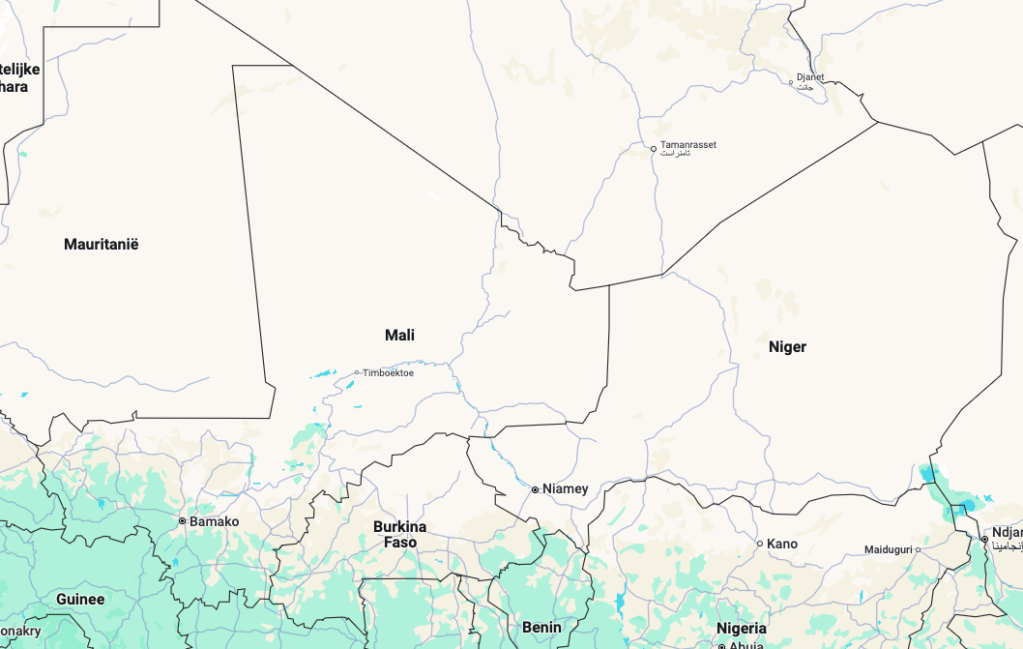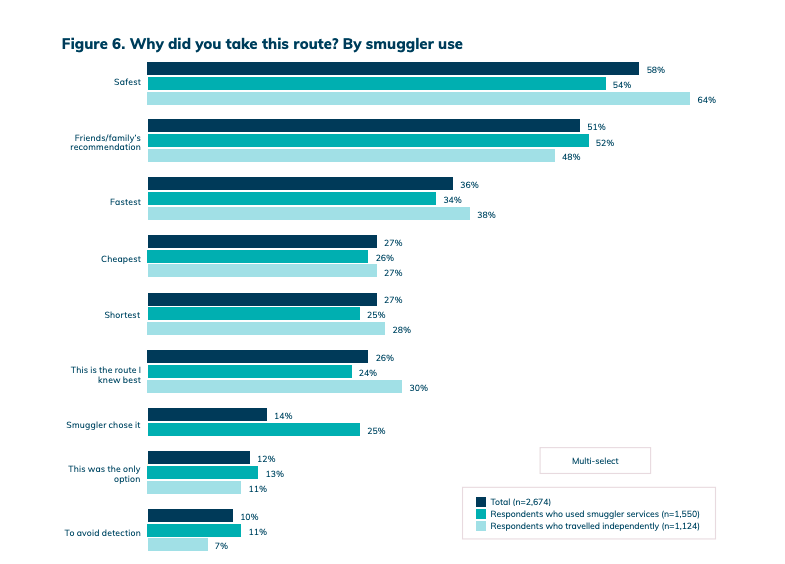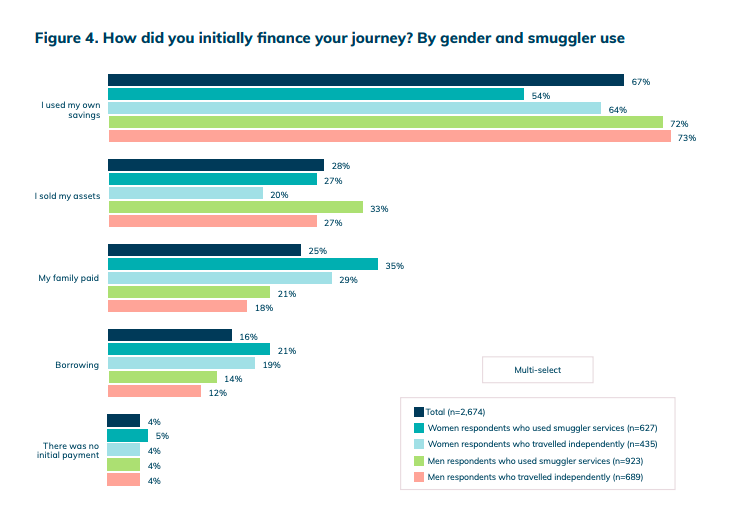A new report by the Mixed Migration Center highlights the risks and challenges faced by migrants in the Central Sahel region, focusing on the role of smuggling networks and the financial and personal costs migrants face as a result.
Migrants from the Sahel, or journeying through that region often rely on smugglers to facilitate their journeys, significantly increasing the financial costs of migration. A recent report titled "The Role of Smuggling in Shaping Migrants' Journeys, Finances and Risks in the Central Sahel," published by the Mixed Migration Center (MMC), reveals that the average cost for a migrant using smugglers is significantly higher than for those traveling independently.

Althought the report focused on the Central Sahel region, it underlined that most of those traversing this area are hoping to make their way towards North Africa and on to Europe eventually.
In the Central Sahel, smuggling fees alone can reach up to 2,750 US dollars (around 2,528 euros), though the average amount spent on smuggling services is approximately 113 US dollars (around 103 euros), accounting for 29 percent of the total migration cost, according to the report. The findings also highlight that smugglers play a critical role in helping migrants navigate dangerous borders and difficult terrain, but the added financial burden leaves many vulnerable, forcing them to rely on savings, family support, or even selling assets to fund their journey.
Read AlsoAre efforts to stamp out migrant smuggling on track?
Safety and risks along the journey
During these long journeys, unexpected costs and shortfalls frequently occur. Some migrants, particularly women, resort to risky or exploitative situations, including transactional sex, to meet financial demands, note the report's authors.
Smuggling networks also impact migrant safety. While smugglers can offer protection and help avoid dangerous routes, they also expose migrants to other risks. Many travelers pass through highly dangerous regions, where they are vulnerable to violence, theft, and exploitation. The use of smugglers is often seen as a necessary strategy to mitigate these risks, particularly when navigating conflict zones or high-risk border areas.

The decision to use a smuggler is shaped by multiple factors, including the need to navigate restricted or hazardous routes. Even migrants with valid documents sometimes rely on smugglers, with 49 percent of smuggler-users considering themselves regular migrants. Most migrants use smuggling services for only part of their journey rather than the entire trip, with reliance increasing when crossing multiple countries. Smugglers also act as key sources of assistance -- 58 percent of those using smugglers report receiving food, water, and shelter, making them crucial for migrant survival.
Smugglers play an essential role in helping migrants bypass movement restrictions, such as border closures following Niger's 2023 coup. They continue to facilitate transit through key border points like Nigeria-Niger and Benin-Niger, despite the heightened risks. Despite the dangers, most migrants (83 percent) believe smugglers are necessary to achieve their migration goals, with only 16 percent feeling misled by them.
Read Also'Libyans, armed and hooded, picked us up in the desert' – testimony of a Guinean in Tunisia
Financial and gendered risks
The financial aspects of migration also shape reliance on smugglers. Smuggler fees in the Central Sahel are relatively affordable, with half of smuggler-users paying 49 US dollars or less (around 45 euros), and 56 percent making upfront payments. However, smuggler-users, particularly women, often begin their journeys with less financial independence, relying more on family support or loans. Many migrants underestimate the financial burden of migration -- 41 percent of smuggler-users reported insufficient pre-departure funds.

Gender plays a crucial role in migration risks. While both men and women face dangers, women are more likely to experience sexual violence, regardless of whether they use smugglers. Men, on the other hand, face greater risks of kidnapping, theft, and life-threatening situations due to the hazardous routes they take.
Women facing financial difficulties are particularly vulnerable, with some turning to transactional sex to cover expenses -- 16 percent of female smuggler-users and 15 percent of female independent travelers reported this experience. These financial struggles, combined with insecurity along migration routes, highlight the paradox of smugglers: they provide essential support yet expose migrants to significant dangers.
Corruption is another widespread risk for migrants traveling through the Central Sahel, affecting both those who use smugglers (74 percent) and those who travel independently (66 percent). Smuggler-users have less direct contact with border officials than independent travelers, as smugglers often handle bribery negotiations on their behalf.
However, dangers remain significant, particularly for men, who often traverse the most dangerous routes. Among male smuggler-users, 42 percent reported life-threatening risks, and 41 percent experienced kidnapping. Meanwhile, female migrants -- regardless of smuggler use -- remain at persistent risk of gender-based violence, with 14 percent of female smuggler-users and 13 percent of independent female travelers reporting experiences of sexual violence.
Read Also'My wife was unrecognizable when I found her': An Ivorian describes the hell of Libyan prisons
Rethinking EU migration policies
The increasing reliance on smugglers by migrants from or traveling through the Central Sahel highlights the fragile balance between migration, border security, and human rights. While smugglers enable movement, they also exploit migrants financially and expose them to serious risks.
This raises pressing concerns for the European Union regarding migration control, border security, and humanitarian protection, believe the report's authors. Strict border policies aimed at reducing irregular migration may unintentionally drive migrants toward even more dangerous routes.
The MMC report underscores the urgent need for the EU to expand legal migration pathways, strengthen protection mechanisms -- especially for women and at-risk groups -- and engage with African partners in areas beyond security enforcement.
